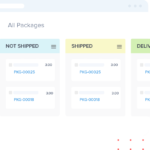Budgeting is a critical skill that can transform your financial life, yet many beginners find it intimidating. Whether you’re an art enthusiast managing gallery expenses or someone starting from scratch, budgeting tips for beginners are your first step to financial freedom. This guide will walk you through practical tips to create and stick to a budget. This guide will walk you through practical tips to create and stick to a budget.
1. Understand the Importance of Budgeting
Budgeting is more than just numbers; it’s about taking control of your financial future. For beginners, understanding why budgeting tips for beginners matter is crucial. Here are some key benefits:
- Helps track expenses and identify unnecessary spending.
- Provides a clear path to achieving financial goals.
- Reduces stress by eliminating financial surprises.
2. Set Clear Financial Goals
Before creating a budget, define your financial goals. These goals could be short-term (buying art supplies), medium-term (saving for an art workshop), or long-term (investing in a studio). Write them down to stay motivated.
Example Goals:
- Save $500 for an art course in 3 months.
- Pay off $1,000 in credit card debt in 6 months.
- Build an emergency fund of $5,000.
3. Track Your Current Spending
You can’t create an effective budget without knowing where your money is going. Use apps, spreadsheets, or even a notebook to track your expenses for a month. Categorize your spending into essentials (rent, groceries) and non-essentials (eating out, art collectibles).
Example Table:
| Category | Monthly Spending | Percentage of Income |
|---|---|---|
| Rent | $1,000 | 40% |
| Groceries | $300 | 12% |
| Art Supplies | $200 | 8% |
| Entertainment | $150 | 6% |
| Savings | $350 | 14% |
4. Choose a Budgeting Method
Pick a budgeting method that suits your lifestyle. Here are a few popular ones:
- 50/30/20 Rule: Allocate 50% to needs, 30% to wants, and 20% to savings.
- Zero-Based Budget: Every dollar has a purpose; income minus expenses equals zero.
- Envelope System: Use cash envelopes for each spending category.
5. Prioritize Saving
Saving should be a non-negotiable part of your budget. Automate your savings to make it easier. Aim to save at least 20% of your income, and increase this percentage as your financial situation improves.
Tips to Save More:
- Set up a high-yield savings account.
- Save windfalls like bonuses or tax refunds.
- Avoid impulse purchases by waiting 24 hours before buying.
6. Cut Unnecessary Expenses
Identifying and eliminating wasteful spending is key to staying within your budget. Review your spending habits and look for areas to cut back.
Ideas to Save Money:
- Brew coffee at home instead of buying it daily.
- Cancel unused subscriptions.
- Opt for free or discounted art events.
7. Plan for Irregular Expenses
Unexpected costs can derail your budget. Prepare for these by creating a sinking fund—a savings pool for irregular expenses like art show fees or holiday gifts.
Examples of Irregular Expenses:
- Annual membership fees.
- Seasonal art supplies.
- Emergency home repairs.
8. Use Budgeting Tools
Leverage technology to simplify budgeting. Many apps and tools can help you track expenses, set goals, and stay on top of your finances.
Popular Budgeting Tools:
- Mint
- YNAB (You Need A Budget)
- PocketGuard
9. Stay Flexible and Review Regularly
Life changes, and so should your budget. Review your budget monthly to ensure it aligns with your goals and circumstances. Adjust as needed for unexpected income changes or new expenses.
Review Checklist:
- Are you meeting your savings goals?
- Have any expenses increased?
- Do you need to adjust spending categories?
10. Celebrate Small Wins
Budgeting can be challenging, so reward yourself for milestones achieved. Celebrate hitting savings goals or sticking to your budget for three consecutive months.
Reward Ideas:
- Purchase a new art tool.
- Attend a local art exhibit.
- Treat yourself to a special meal (within budget).
Final Thoughts
Budgeting is a journey that requires discipline, flexibility, and patience. By following these budgeting tips for beginners, you can take control of your finances and pave the way for a secure and fulfilling financial future. Remember, the goal isn’t to restrict yourself but to empower yourself to spend intentionally and save for what truly matters.
Start your budgeting journey today and watch your financial confidence soar!










